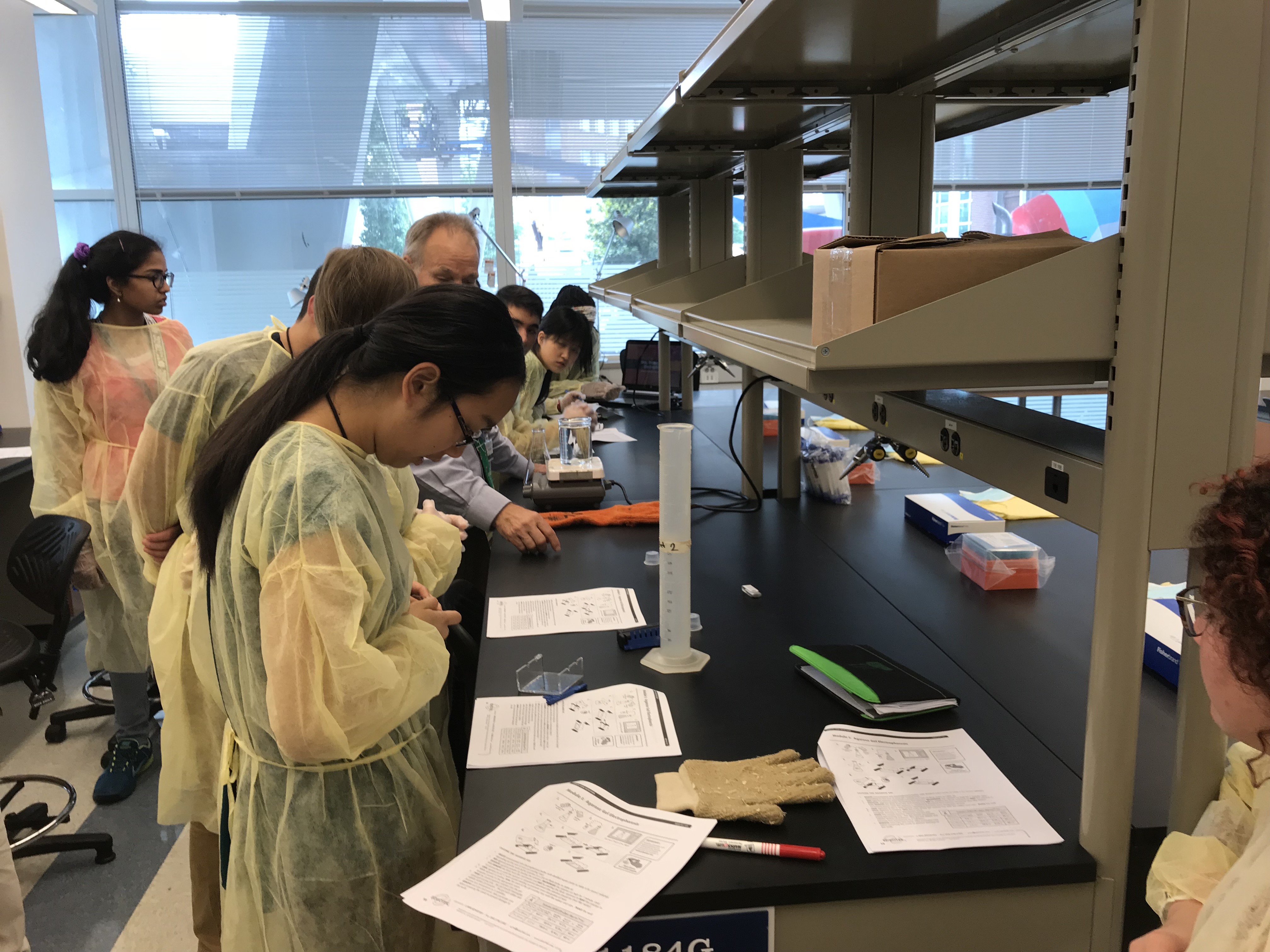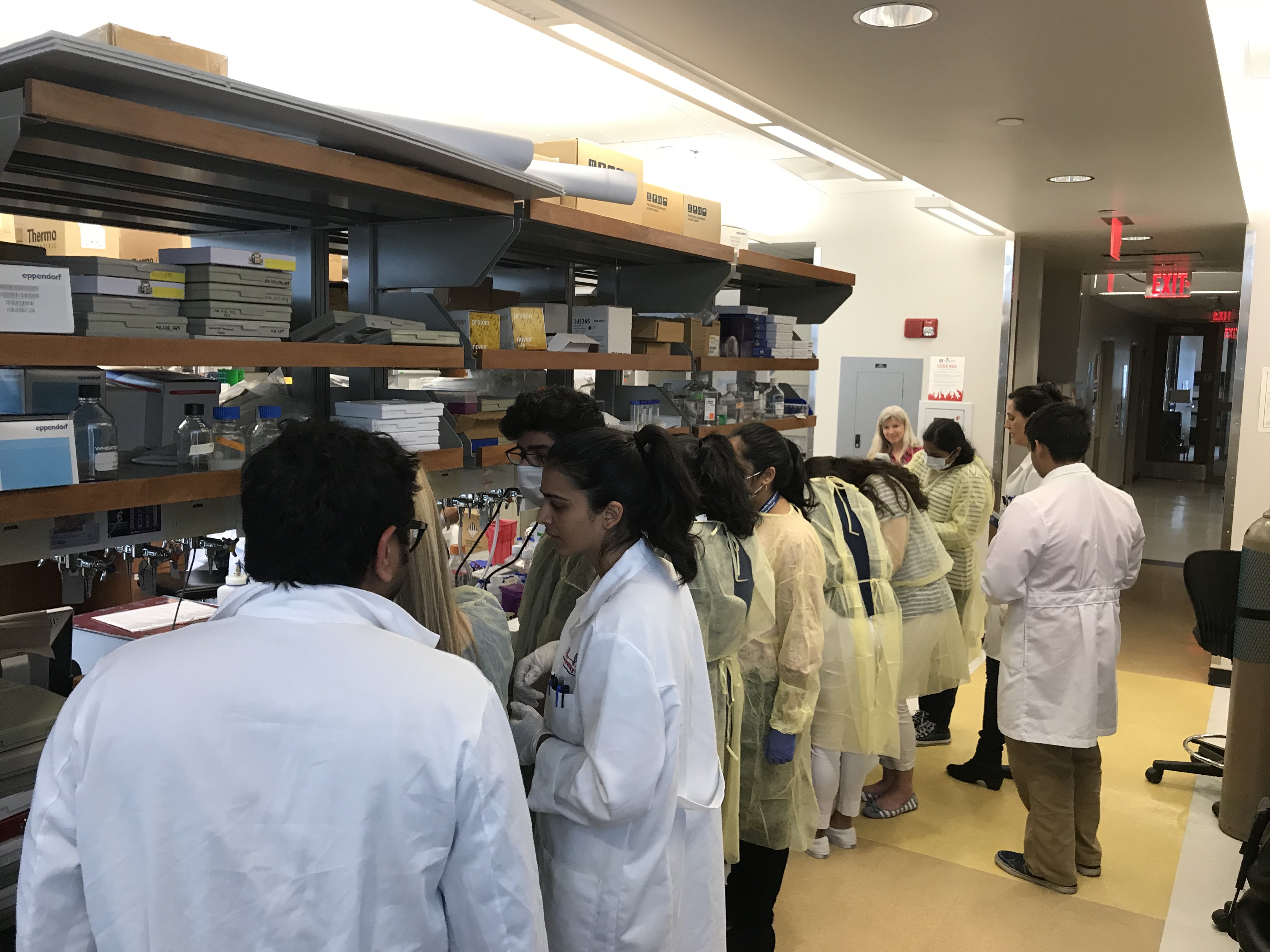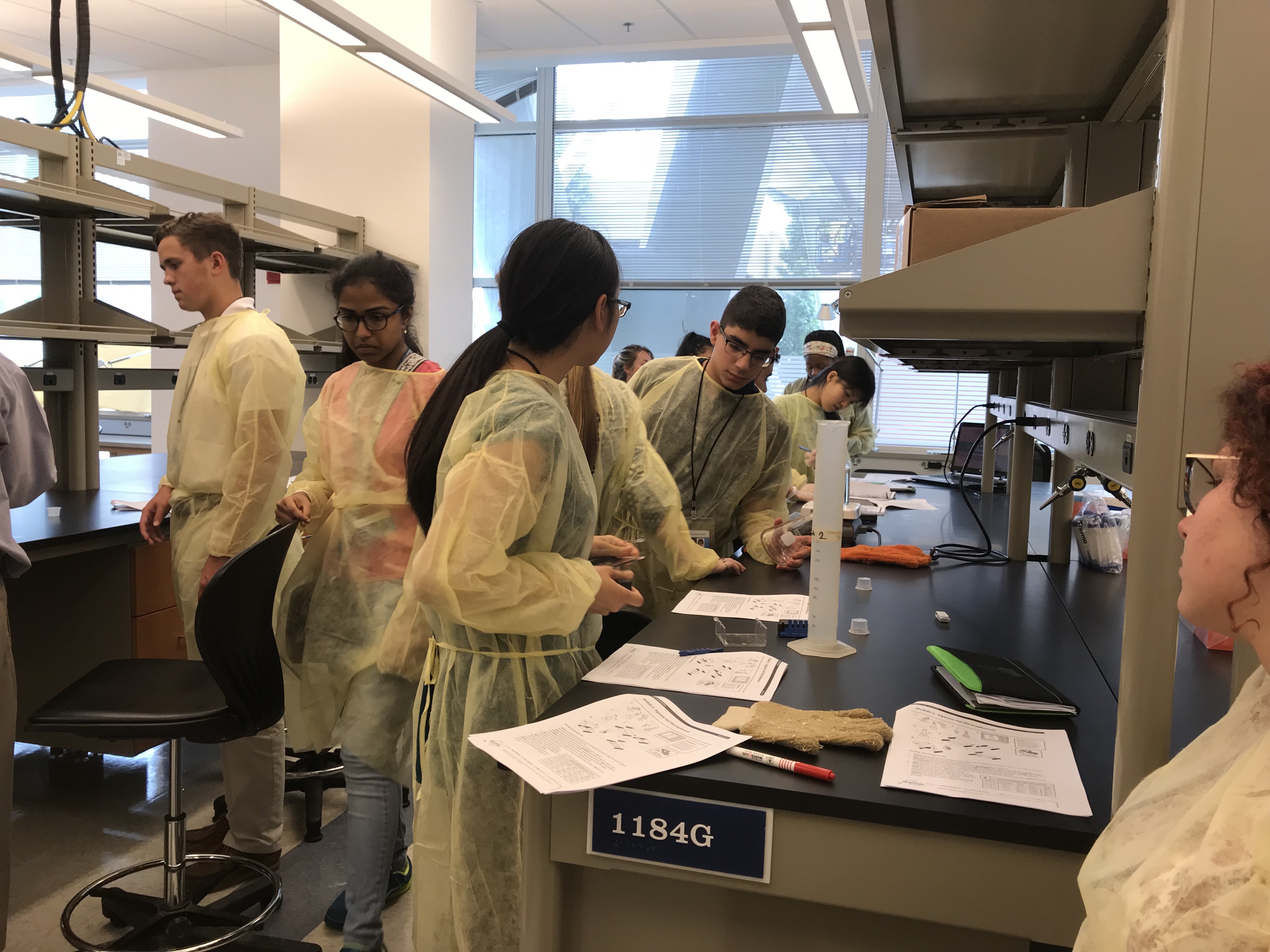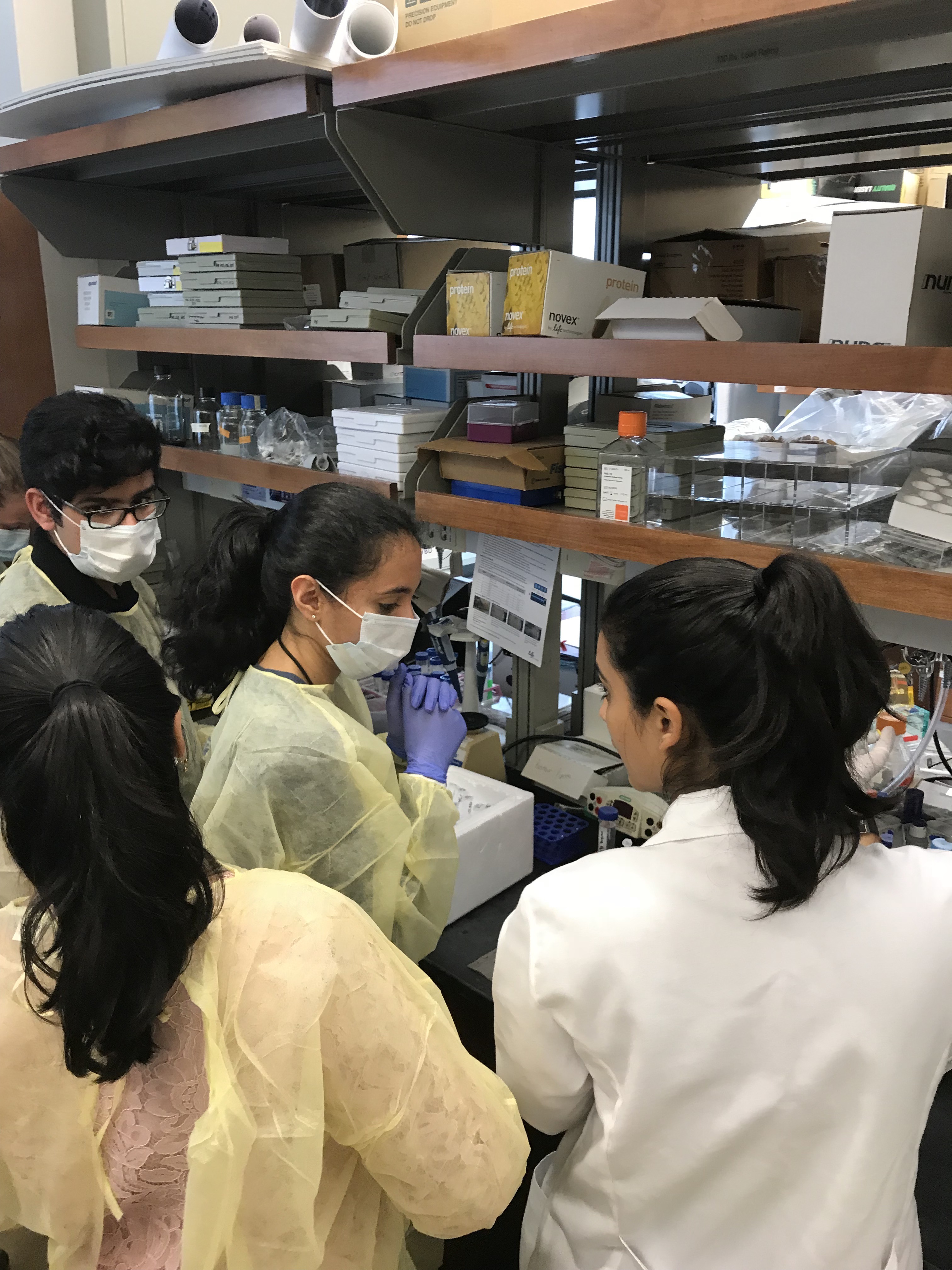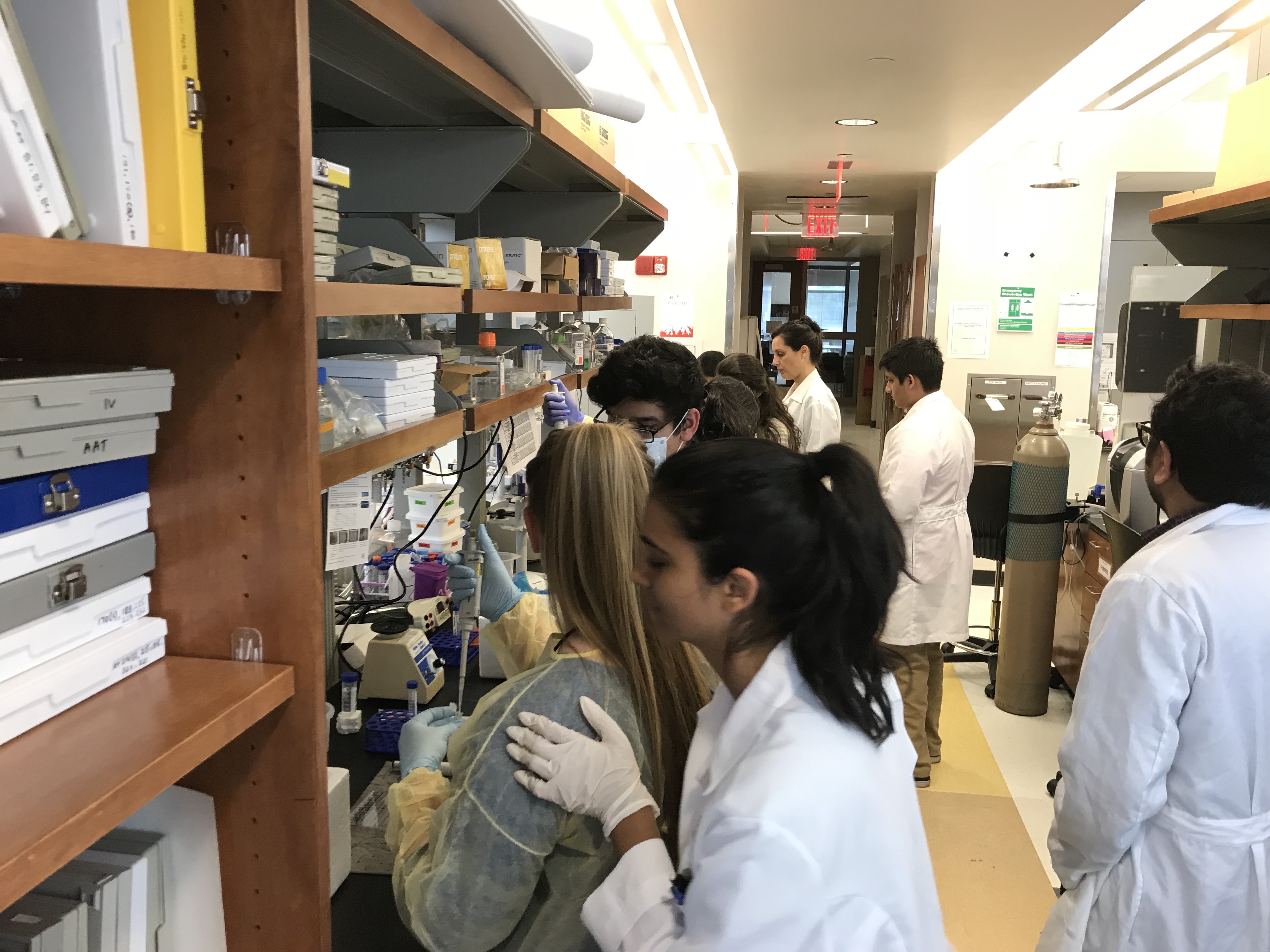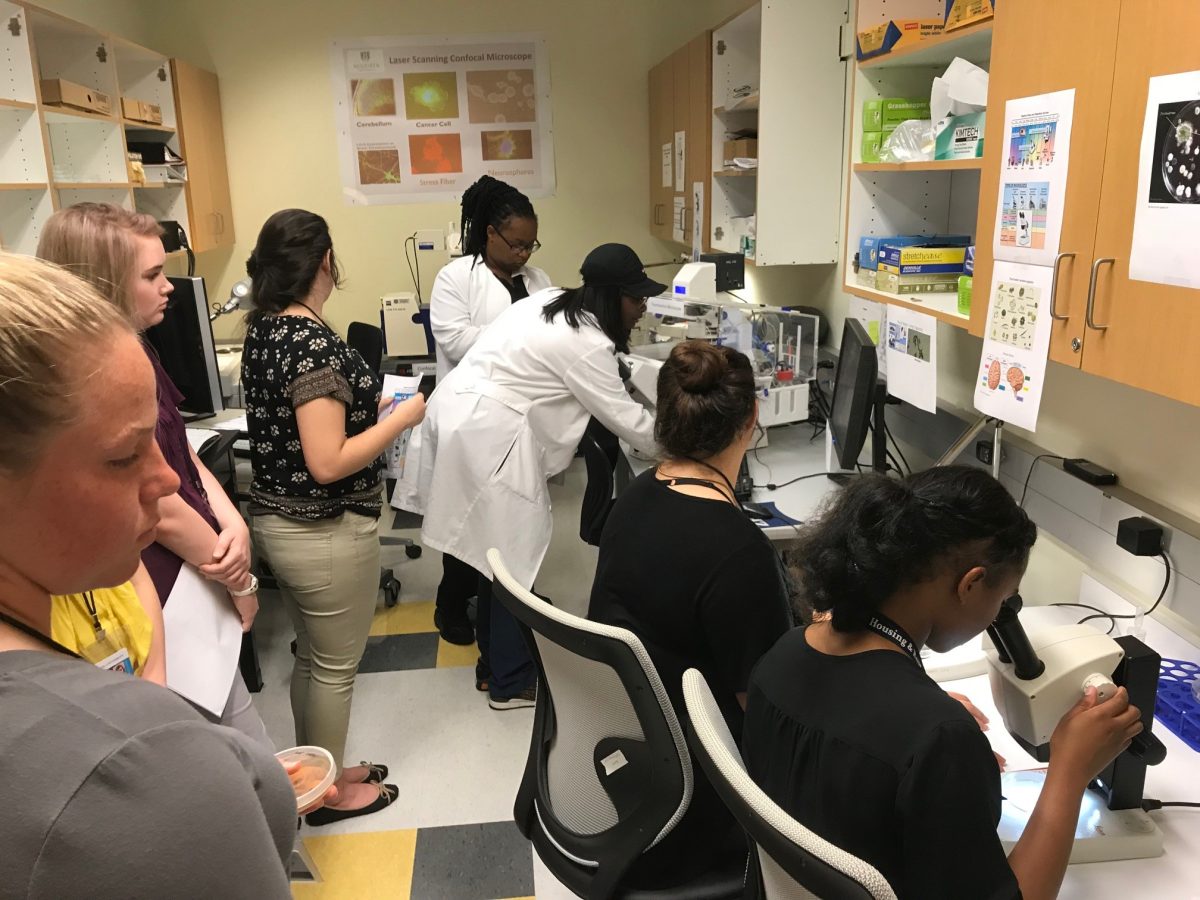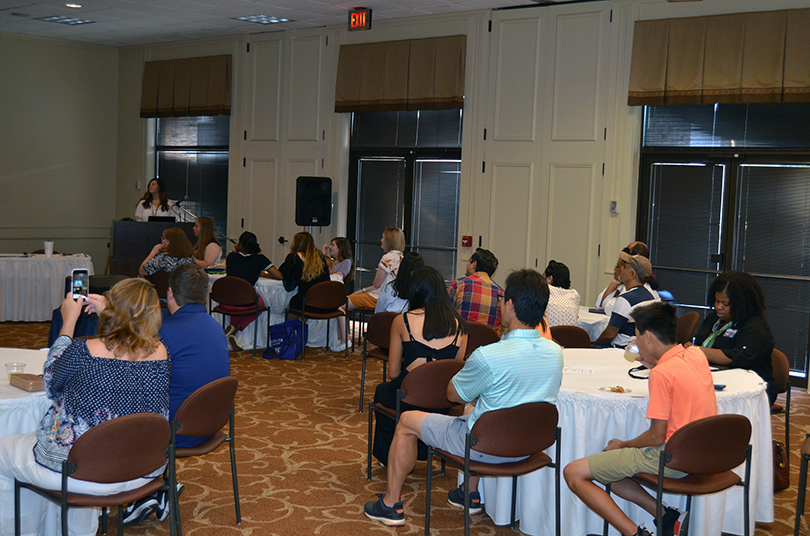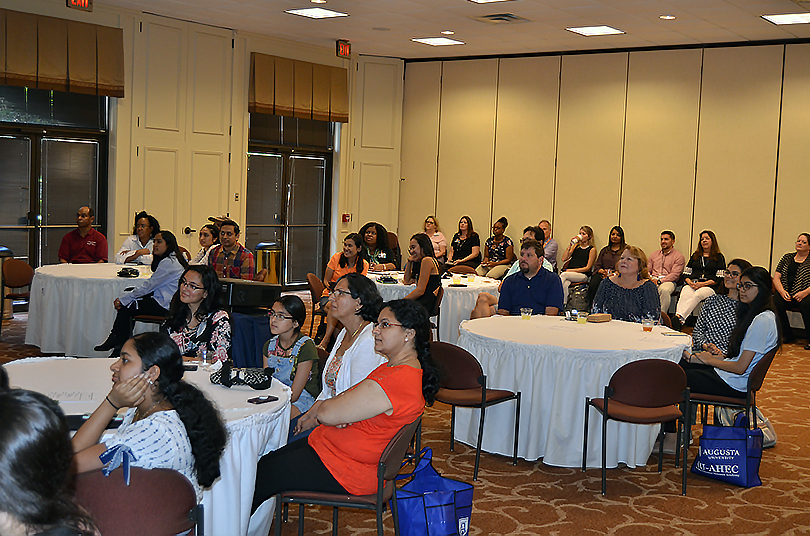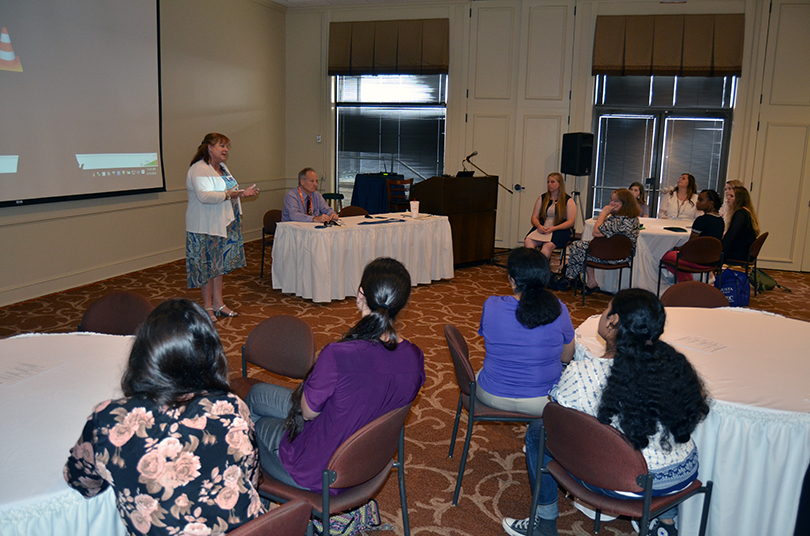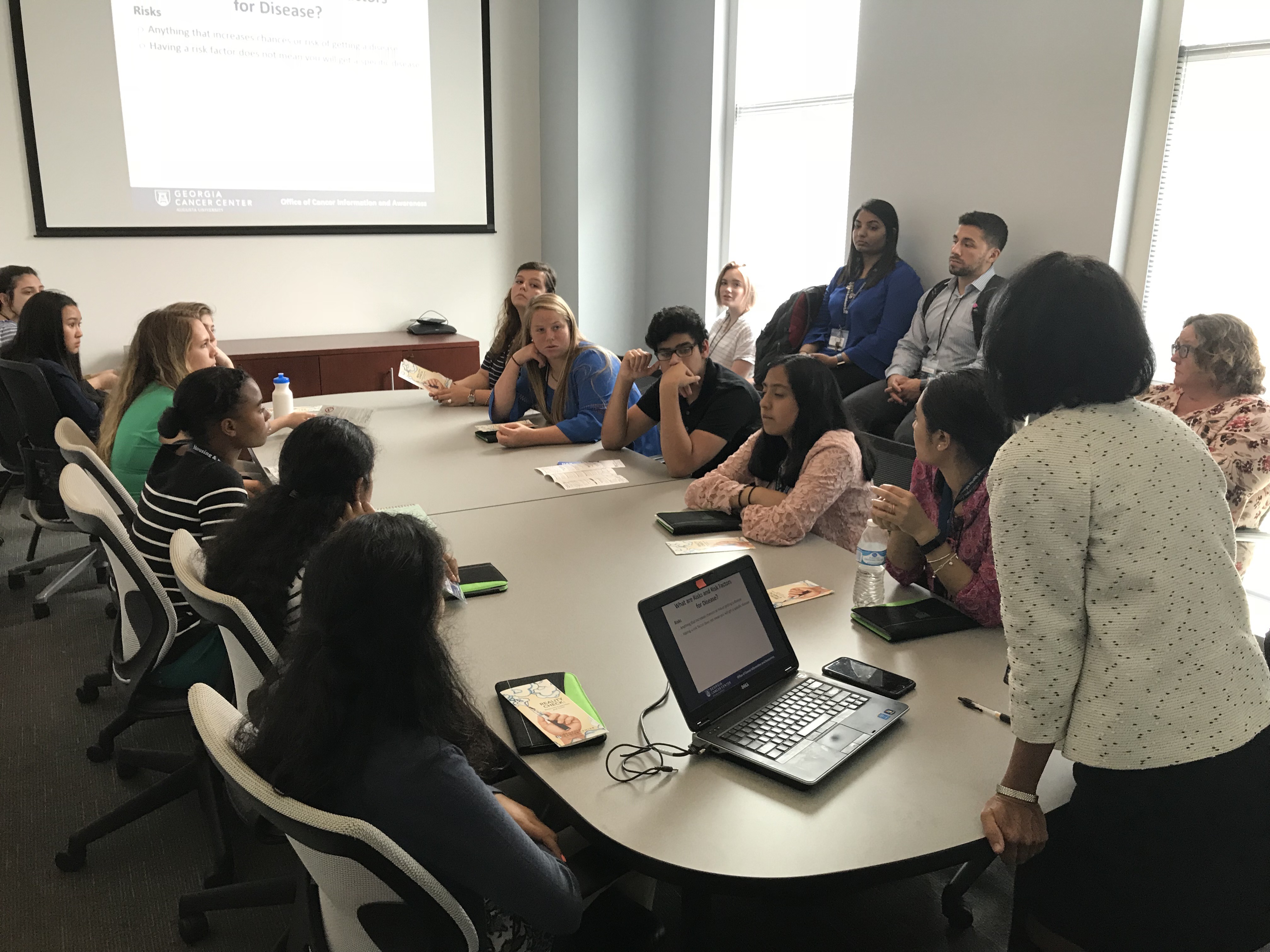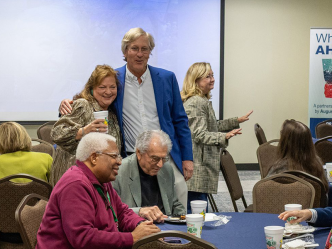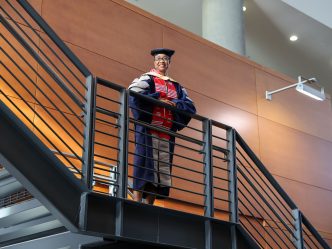A group of 35 high school and college students used part of their summer vacation at Augusta University learning what a future career in healthcare could look like. Now, they will take what they learned and decide the best route to land a job as a doctor, nurse, cancer researcher or other medical professional.
“It opened my eyes to the different aspects of a career in the medical field,” said Alex Yger, a rising high school senior. “It was a chance to confirm why I wanted to be a pediatrician and work with children.”
Yger and her fellow campers spent six days in June as part of the 2018 Health Sciences Summer Academy at Augusta University. Organizers divided the students into two camps: basic and advanced. High school freshmen, sophomores and some juniors ended up in the basic camp. Other juniors, along with seniors and college freshmen were placed in the advanced camp.
“One of the things we know is that you have to attract students while they are in high school,” said Denise Kornegay, director for the Health Sciences Summer Academy. “If they want to pursue a job in healthcare, they need to take a lot of science and math classes sooner. Doing so will give them an advantage in higher education down the road.”
Kornegay and her team have been conducting the camp, in its current iteration, for the last four years. The camp falls in line with her job as the director for Area Health Education Centers (AHEC) and her responsibility to build the health workforce pipeline for the entire state of Georgia. Yger attends school at Loganville High School in Loganville, Georgia. Not only does she want to be a pediatrician, she said she plans to attend Augusta University to do it.
“The most important thing I think I learned during the camp from Dr. Reda Wadie Bassali at the Children’s Hospital of Georgia,” she said. “He taught me that a pediatrician shouldn’t just look at a patient’s physical symptoms as part of their diagnosis. I need to look at their family history, the kind of life the family leads and other conditions that could cause a child to be diagnosed a certain way.”
For the first time in the Academy’s history, the Georgia Cancer Center welcomed students to the M. Bert Storey Research Building and Outpatient Services clinic.
“We looked for a way to host a summer camp for future scientists and cancer doctors,” said Argenail Darrington, project manager for the Georgia Cancer Center. “We received questions from high school students in the CSRA looking for opportunities to learn more about what we do at the cancer center.”
Darrington said the HSSA was the perfect way to bring high school students in and show them the role they could play in finding the next treatment for breast cancer, prostate cancer, or one of more than a dozen cancers treated at the Georgia Cancer Center’s patient clinic each week.
“The students told me how much fun they had looking at cancer cells under a microscope and visiting the tumor bank,” Darrington said. “I already have requests to come back for next year’s camp.”
Another highlight: extracting a solid tumor (a peanut) from human tissue (Play-Doh).
The students were divided into groups based on different cancer types. They received a case study while working in the research labs. Their week wrapped up with presenting their findings for their project.
“Being a cancer researcher takes patience and a strong level of commitment,” Darrington said. “We wanted to show them what it takes by shadowing someone and seeing what their life is like day-to-day. Hopefully, we increased their level of interest and gave them something to plan for.”
 Augusta University
Augusta University

